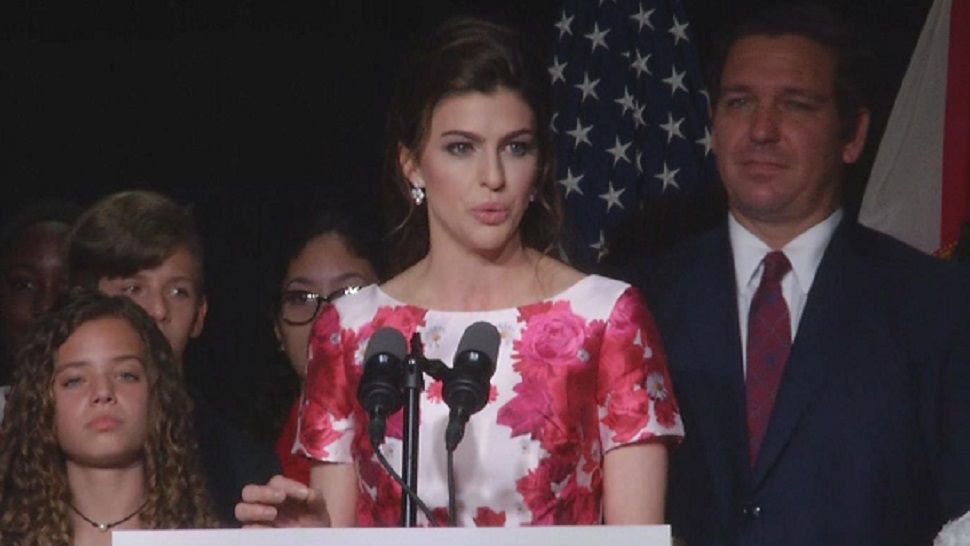TALLAHASSEE, Fla. — Proposed legislation in Tallahassee would allow employers to pay “hard to hire” individuals less than the rising minimum wage.
What You Need To Know
- SJR 854 allows certain people to be paid less than minimum wage
- List includes youth under 21, convicted felons and prison inmates
- Does not specify minimum wage amount
- COMPLETE COVERAGE: Florida Legislature News and how to contact your state lawmakers
State Sen. Jeff Brandes (R-St. Petersburg) filed Senate Joint Resolution 854 this week.
The measure, if approved, would allow individuals, including youth under the age of 21, convicted felons, and prison inmates, to be paid less than minimum wage.
“The goal here is to recognize that while, for many groups, there will be positive implications for the $15 per hour minimum wage, for other groups there will be negative implications,” Brandes told Spectrum News Friday. “There are negative implications in terms of it’s harder for them to get a job in the first place, it’s harder for them to get a foot in the door for a job.”
Brandes, who has long been seen as an advocate on criminal justice reform, said allowing companies to temporarily pay certain “hard to hire” workers less than minimum wage would actually create opportunities for some people to get on the job skills and training that they otherwise may not be able to get.
“These groups have typically in the 25% to 35% unemployment rate, which is four or five times the state’s average of 6.5%,” he said. “The goal is to allow us to create a training wage, which is offered in many other states. It is below minimum wage to allow them non-permanent amount of time to gain the skills necessary to stay in that job, and to get employers to look at a group they otherwise would not consider.”
Brandes likened the program to a paid internship.
The proposal does not specify a wage amount nor does it specifically define who would be considered “hard to hire”.
Senate Joint Resolution 854 would not directly allow companies to pay less than minimum wage, but rather, Brandes said, gives future Legislatures the flexibility to have the discussion and potentially craft bills.
“I was turned away over and over again simply because I checked the box that said I had a past felony conviction,” said Neil Volz, Deputy Director of Florida Rights Restoration Coalition.
UPDATE: Florida's Minimum Wage will reach $15/hour by 2026.
— Greg Angel (@NewsGuyGreg) January 29, 2021
Is it too much?
FL State Sen. @JeffreyBrandes (R-St. Pete) explains why he's pushing an effort to allow "Hard to Hire" workers to be paid less than minimum wage.
Story: https://t.co/9Bc44QAjjH pic.twitter.com/Pj2Qe3B2fb
Volz says his group — which successfully led efforts to pass voting restoration rights for felons — is concerned about the implications that Brandes’s measure could have.
“We are actively trying to break down barriers to employment for people with past felony convictions, and making progress along with people like Senator Brandes, but we think the unintended or long term consequences of this legislation would actually lock in second-class status for far too many people,” Volz said.
More than 60% of voters approved a constitutional amendment in 2020 to push Florida’s minimum wage to $15 per hour by the year 2026.
“This proposed resolution is a patently unconstitutional attempt to undermine the will of the voters, who resoundingly voted to ensure all of Florida’s low-wage workers are paid enough to live and work with dignity,” said Orlando attorney John Morgan, who is perhaps the most visible proponent and organizer of the amendment to increase Florida’s minimum wage.
Florida’s current minimum wage is $8.56 an hour, but will increase to $10 an hour by September 30, 2021, and then continue to go up $1 per hour each year until 2026. The federal minimum wage is still $7.25 per hour.
“The reason it’s not been done legislatively is because big business and big companies like the idea of slave wages and keeping people down and making more money for themselves, and at the expense of that hardworking employee,” Morgan said during an episode of Spectrum News’ “Central Florida: Beyond the Soundbite” podcast in September 2020. “And, by the way, at the expense of taxpayers, because we, the taxpayers, are the ones that pay for all of the services that hardworking people can’t because there’s not enough money.”
We reached out to Brandes's office for a statement regarding the bill, but have not heard back.
In August 2018, Walt Disney World announced a deal with six labor unions representing 38,000 service employees to gradually raise starting pay through phases from $10 per hour to $15 per hour by October 21, 2021.
Universal Orlando Resort announced in September 2019 that it too would eventually reach $15 an hour minimum pay by 2021.
To Compare (using 40 hours per week, pre tax math below):
- Florida's Current Minimum Wage: $8.56 / hour
- FL Minimum Wage Annual Salary: $17,804
- Federal Current Minimum Wage: $7.25 / hour
- Federal Minimum Wage Annual Salary: $15,080
- Annual salary at $15 an hour: $31,200
Wages have long been a focal point, at least in Central Florida, where the economy is anchored by many low-wage tourism jobs.
Low wages and a lack of affordable housing has put many families in prolong positions of financial stress.
Orange County estimates the average rent for a one-bedroom apartment is between $1,200 and $1,400. Many housing companies require applicants to earn three times the rate of rent to qualify.
For a $1,200 apartment, that threshold is $3,600. Those earning Florida’s $8.56 an hour minimum wage, working 40 hours per week, would earn only approximately $1,369 before taxes.
They also demand first month’s rent, last month’s rent, and a security deposit up front. For a $1,200-per-month apartment, a person could be facing $3,600 they have to come up with, even if they qualify.









